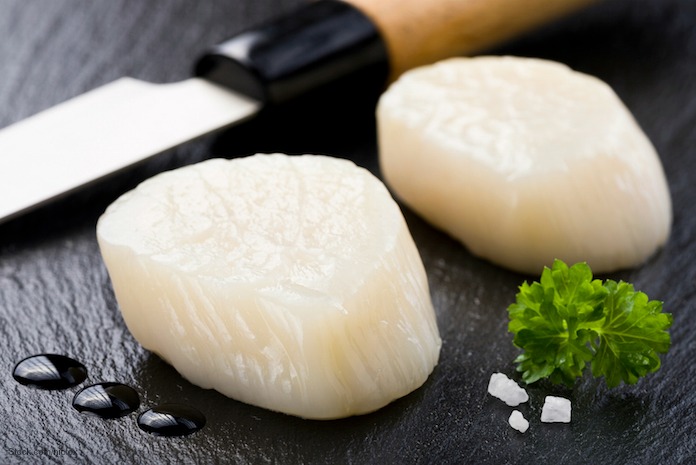The hepatitis A outbreak in Hawaii linked to imported frozen raw scallops has now sickened 228 people, according to an update by the Hawaii Department of Health. That is an increase of 22 cases since last week. All of the cases have been in adults. Fifty-eight people have been hospitalized because the illnesses are so severe.

Illness onset dates have ranged from 6/12/16 to 8/16/16. There will probably be more cases identified in the coming weeks, since the incubation period for the virus is 2 weeks to 50 days, and the the product believed responsible for the outbreak stopped being sold in mid-August.
The source of the outbreak is focused on Oahu. Public health inspectors found that raw scallops served at Genki Sushi restaurants on the islands of Oahu and Kauai were the likely source of the outbreak. Sea Port Bay Scallops, wild harvest, raw frozen, imported from the Philippines were named as the product that caused the outbreak. The scallops are embargoed throughout the state, and Genki Sushi restaurants were temporarily closed for cleaning. Sea Port Products has recalled the scallops.
The DOH states that scallops served at Genki Sushi locations on the Big Island and Maui came from a different supplier and were not associated with the outbreak. The Sea Port Bay Scallops were also distributed in California and Nevada. There is no indication that any hepatitis A illnesses have been linked to the scallops in those states.
The scallops were served raw at the Genki Sushi restaurants in question. This outbreak highlights food safety expert’s warnings about not eating raw shellfish or other raw foods, including raw milk, raw sprouts, unpasteurized juices, raw or undercooked eggs, and raw or undercooked meat and poultry. If you are in a high risk group, that is, elderly, with a compromised immune system, or a chronic illness, you should not eat those foods.
The symptoms of hepatitis A include jaundice, clay-colored stools, weight loss, dark urine, joint pain, abdominal pain, diarrhea, loss of appetite, and lethargy. Unfortunately, people with this virus are contagious two weeks before they show any signs of symptoms of the disease, which means that they easily pass the virus on to others before they know they are ill.
There have been eight businesses in Hawaii with food handlers who have tested positive for hepatitis A. They include Chili’s at 590 Farrington Highway in Kapolei on Oahu; two Hawaiian Airlines flight attendants; Hokkaido Ramen Santouka at 801 Kaheka Street in Honolulu, Oahu; Sushi Shiono at the Waikoloa Beach Resort on Hawaii; Taco Bell at 94-790 Ukee Street in Waipio, Oahu; Tamashiro Market at 802 North King Street in Kalihi, Oahu; Papa John’s Waipahu at 94-1021 Waipahu in Oahu; and New Lin Fong Bakery at 1132 Maunakea Street in Chinatown, Oahu. The DOH stresses that these businesses are not associated with the outbreak. But if you visited any of those places on the dates the infected person was working, you should consider getting a hepatitis A vaccination or monitor yourself for symptoms of the disease.
If you are sick, especially with a diarrheal illness or with hepatitis A, stay home until symptoms have resolved. Most people recover in a few weeks, but some may have symptoms for months.




